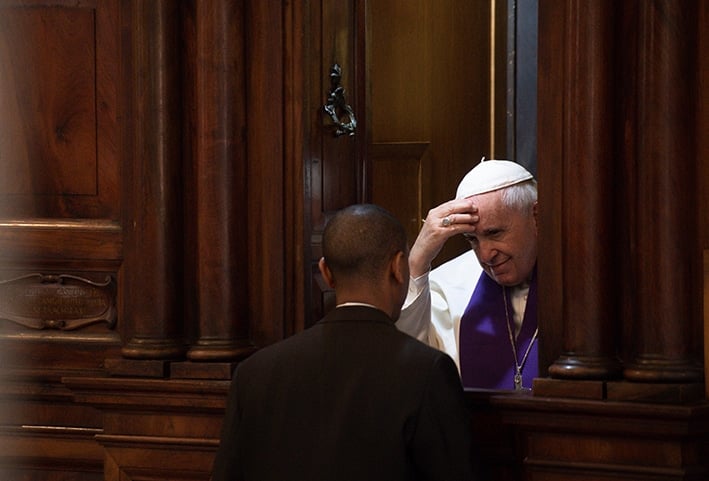
I understand the recent Plenary Council of Australia has asked that Pope Francis approve a wider use of the Third Rite of Reconciliation for Australia. I thought this had been ruled out years ago. Might it be approved now?
My own answer is that it is most unlikely to be approved now, but that depends on Pope Francis, not on me. Why do I say this?
The third rite, which involves general absolution of a group of people without prior individual confession, was approved only for cases of “grave necessity”. The sequence of events that led up to its approval is the following.
In 1972 the Congregation for the Doctrine of the Faith, with the special approval of Pope Paul VI, issued some Pastoral Norms on general absolution which were substantially those now in force. They were incorporated into the Rite of Penance, approved by Pope Paul VI in 1974, as the third rite of the sacrament. They were later approved by Pope John Paul II when he promulgated the Code of Canon Law in 1983 (Canons 961-963) and the Catechism of the Catholic Church in 1992 (CCC 1483-1484).
Taking the text from the Catechism, which is the most recent document, there are two circumstances in which general absolution may be given. The first can arise “when there is imminent danger of death without sufficient time for the priest or priests to hear each penitent’s confession” (CCC 1483). This could happen, for example, in the case of an earthquake, a tsunami, a terrorist attack, a sinking ship, an airplane about to crash, etc.
The second arises “when, given the number of penitents, there are not enough confessors to hear individual confessions properly in a reasonable time, so that the penitents through no fault of their own would be deprived of sacramental grace or Holy Communion for a long time” (CCC 1483). The Pastoral Norms explain that this can happen in certain mission territories, where a priest goes seldom and only for a short period of time, such that he cannot hear all the individual confessions in the time available.
Personally, I cannot see how either of these circumstances exists in Australia at the present time. Undoubtedly for this reason, the Vatican explicitly told the Australian bishops on their ad limina visit to Rome in 1998 that they were not to allow the use of the third rite.

The Pastoral Norms of 1972 explain that the principal reason for limiting the use of general absolution to these exceptional circumstances is Christ’s words to the apostles: “Whose sins you shall forgive, they are forgiven; whose sins you shall retain, they are retained” (Jn 20:22-23). This implies that the priest must hear the individual confession in order to be able to judge whether to forgive or not. The document also mentions “the very great good of souls deriving, according to centuries-long experience, from individual confession and absolution rightly administered” (n. 1).
As a priest who hears hundreds of confessions every month, I see constantly the “very great good” that penitents derive from this sacrament of mercy, of joy. They confess their sins personally, exercising the virtues of humility and sincerity in so doing. They receive personal counsel and direction, with the opportunity to ask questions and engage the priest in a conversation about their concerns, which helps them in their spiritual struggle.
They hear personally the words of forgiveness of their sins, coming from God through the priest. They are given some penance to do, which helps to make up for their sins. They leave the sacrament full of joy and hope for a new beginning in their spiritual life. What is more, as St John Paul II told priests in Lent, 1981, “Confession periodically renewed, the so-called confession ‘of devotion’, has always accompanied the ascent to holiness in the Church.”
I cannot, for the life of me, imagine any of the penitents I see having any desire whatsoever to make use of the third rite. Nor can I imagine any priest who hears many confessions have this desire. What the Church needs is more holiness, more preaching on the value of individual confession, not an easy way out.
